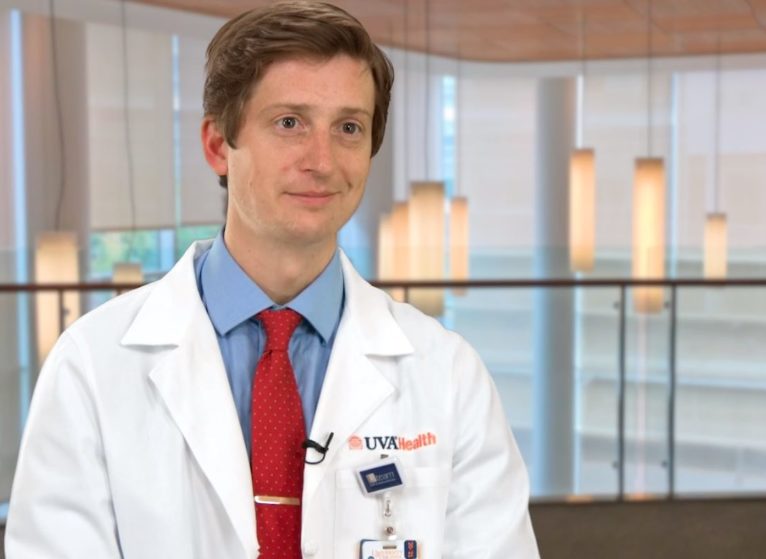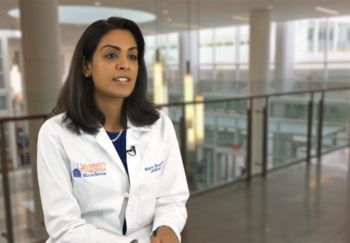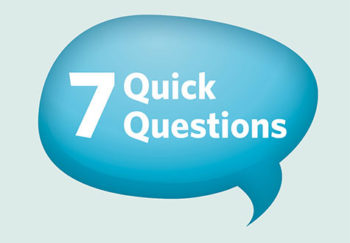Cardiologists diagnose and treat heart conditions or diseases. But prevention is also key for these providers, especially for patients with a family history of heart attacks, cholesterol, or lipid disorders. Sometimes patients need medication. But often, simple lifestyle changes can make your heart healthier.
Meet Sports Cardiologist Michael Ayers, MD
Sports cardiologists typically work with athletes to help them stay heart healthy. Sports cardiologist Michael Ayers, MD, cares for patients with hypertrophic cardiomyopathy (HCM). This condition is more common in athletes.
He also treats other cardiac symptoms and conditions in a wide range of athletes, from runners to cyclists or professional athletes.
1. Why did you become a doctor?
I've always been interested in science and logic. It was extremely important to me that I felt like my job gave back to society. My mother was a nurse, so I was exposed to the medical field from an early stage.
I actually worked as an actor in New York City for about three years after finishing my undergraduate education. Sometimes as an artist, it was hard for me to articulate exactly how I was making a difference. For that reason, I decided to go back to school. I was accepted to Columbia University College of Physicians and Surgeons.
2. Why did you choose sports cardiology?
In medical school, I was always drawn to systems with well-described physiology — systems where we understand exactly how they work. There are still a lot of questions in cardiology. But I love that we have such a detailed understanding of how the heart interacts with the rest of the body.
As a sports cardiologist, we have a wealth of treatments that make people live longer, happier, healthier lives. A better question would be, why would anyone chose anything else?
3. What's one thing about cardiology that might surprise people?
Sometimes people worry that cardiologists will only focus on starting new medications and performing invasive procedures. Cardiologists try to emphasize lifestyle changes before medications. Exercise and dietary changes are incredibly powerful tools for decreasing cardiac risk. For invasive testing, there are diagnoses that can be made with imaging alone—most patients don't even need procedures.
4. Where did you grow up?
I grew up in rural western North Carolina in a town called Cullowhee. My father was a professor at Western Carolina University, and my mother was a nurse at the regional hospital.
5. What's the most exciting research happening in your field right now?
I am biased. The most exciting breakthroughs are with hypertrophic cardiomyopathy, an inherited disease causing thick heart muscle, and cholesterol management. Hypertrophic cardiomyopathy has a new medication, Mavacamten, in development that targets the process driving the thickening of the muscle.
In preventative cardiology, medications called PCSK-9 inhibitors are lowering cholesterol, with incredible reductions in heart attack risk.
We're also starting to better understand how inflammation causes heart disease. We target the inflammatory pathway to prevent heart attacks, heart failure, and strokes.
HCM Diagnosis?
UVA is Virginia's only designated Hypertrophic Cardiomyopathy Center of Excellence.
6. Who is your inspiration or hero?
My grandfather was a state judge in Texas. He had an incredible work ethic and always emphasized how much we owe society. We're lucky to live in an era where our intellectual efforts are acknowledged. We must use those efforts to help our fellow man.
7. What's your favorite thing about working at UVA?
I have been incredibly impressed with the environment at UVA — everyone is so friendly and approachable. Despite having some world-renowned physicians, everyone has a team-first attitude.
My name is Michael Ayers, and I'm a cardiologist at UVA Health. Within cardiology, I have two realms that I sort of operate in. The first is in imaging. Reading of the stress tests and the echocardiograms at UVA. The second is the more clinical side, and on outpatient I see a couple different groups of patients. Patients with something called hypertrophic cardiomyopathy, which is a thick heart disease that's inherited. The second group of patients that I see is in preventative cardiology. So these are patients with either a strong family history or a disease that predisposes them, or puts them at risk for heart conditions in the future. I think from a young age, I really wanted to have a job where I felt like I was contributing in some tangible way to society. My grandfather, who was a very big influence in my upbringing, always talked about serving your fellow man. And then my mother was a nurse. So between the two of them, I think I found my way to medicine pretty naturally. I think what patients can expect is that we're going to share our time together and we're going to slow things down and we're going to really, especially when I meet patients for the first time, go through their story. I want to get to know what your priorities are, what your worries are, and what your expectations are. I love figuring out what it is that a patient values in his or her life, and then helping design a treatment plan that aligns with that value.


